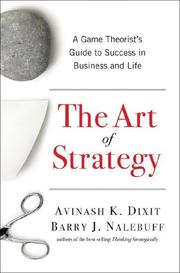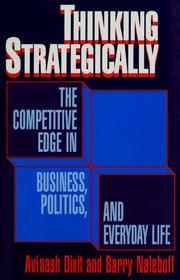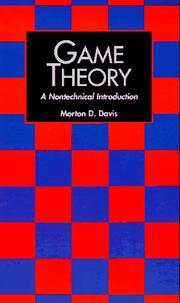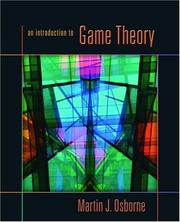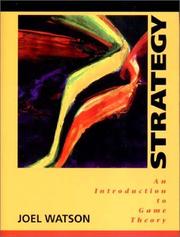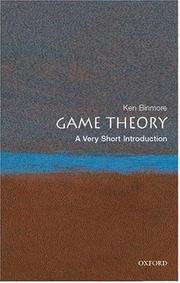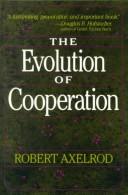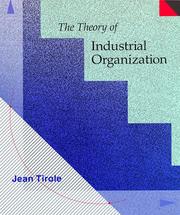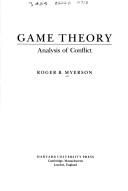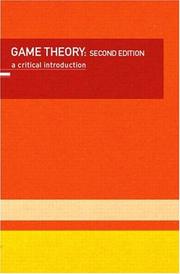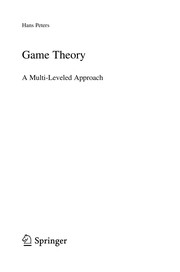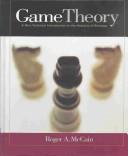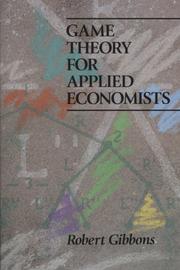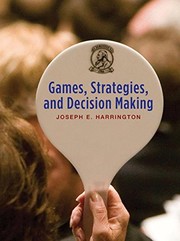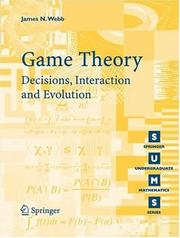If you’re a fan of strategic thinking, decision-making, and understanding human behavior, then delving into the world of game theory is a must. Whether you’re a beginner or an advanced reader, there are plenty of books on game theory that offer fascinating insights and thought-provoking analyses. From classic texts to modern interpretations, the 20 best game theory books cover a wide range of topics, including economics, politics, and psychology. Whether you’re interested in the prisoner’s dilemma, Nash equilibrium, or behavioral economics, these books will provide you with a deeper understanding of game theory and its real-world applications.
Contents
- 1 20 Best Game Theory Books
- 2 The Art of Strategy
- 3 Thinking Strategically
- 4 Game Theory: A Nontechnical Introduction
- 5 The Strategy of Conflict
- 6 An Introduction to Game Theory
- 7 Strategy: An Introduction to Game Theory
- 8 Game Theory: A Very Short Introduction
- 9 The Evolution of Cooperation
- 10 The Theory of Industrial Organization
- 11 Game Theory: Analysis of Conflict
- 12 Game Theory: A Critical Introduction
- 13 Game Theory: A Multi-Leveled Approach
- 14 Game Theory: A Nontechnical Introduction to the Analysis of Strategy
- 15 The Compleat Strategyst: Being a Primer on the Theory of Games of Strategy
- 16 Game Theory for Applied Economists
- 17 Games, Strategies, and Decision Making
- 18 Game Theory: Decisions, Interaction and Evolution
- 19 Game Theory: An Introduction
- 20 Game Theory: A Playful Introduction
- 21 Game Theory: A Practical Introduction
- 22 Final Thoughts on Best Game Theory Books
- 23
20 Best Game Theory Books
The Art of Strategy
by Avinash K. Dixit and Barry J. Nalebuff
The Art of Strategy by Avinash K. Dixit and Barry J. Nalebuff is a captivating book about game theory that provides a comprehensive and accessible introduction to the principles of strategic thinking. The authors, both renowned experts in economics and business, present a wide range of real-life examples and case studies to illustrate the application of game theory in various contexts, from business and politics to everyday decision-making.
The book delves into the concept of game theory, which is the study of strategic decision-making, and explores how individuals and organizations can use strategic thinking to gain a competitive advantage. With its engaging writing style and thought-provoking insights, The Art of Strategy is a valuable resource for anyone seeking to enhance their understanding of strategic interactions and decision-making processes.
Whether you are a student, a business professional, or simply curious about the dynamics of strategic thinking, this game theory book offers an enlightening and enjoyable read that will leave you with a deeper appreciation for the art of strategy.
Thinking Strategically
by Avinash K. Dixit and Barry J. Nalebuff
Thinking Strategically is a compelling book on game theory, co-authored by Avinash K. Dixit and Barry J. Nalebuff. This insightful read provides a fascinating look into the world of strategic decision-making, using real-life examples and engaging anecdotes to illustrate key concepts.
The authors delve into the intricacies of game theory, offering valuable insights into how individuals and businesses can make optimal choices in competitive situations. They explore various strategic scenarios, from business negotiations to political conflicts, shedding light on the art of thinking strategically to achieve favorable outcomes.
With a clear and accessible writing style, Thinking Strategically is a must-read for anyone interested in understanding the dynamics of decision-making and strategic interactions. It equips readers with the tools to analyze and navigate complex situations, making it an invaluable resource for students, professionals, and anyone keen on enhancing their strategic thinking skills. This game theory book is sure to captivate and enlighten readers with its practical wisdom and thought-provoking content.
Game Theory: A Nontechnical Introduction
by Morton D. Davis
Looking for a captivating book about game theory that doesn’t require a degree in mathematics to understand? Look no further than Game Theory: A Nontechnical Introduction by Morton D. Davis. This engaging and accessible book provides a comprehensive overview of the fascinating field of strategic decision-making. Through clear and concise explanations, Davis introduces readers to the fundamental concepts of game theory, including the prisoner’s dilemma, Nash equilibrium, and the concept of ‘zero-sum’ games.
One of the most compelling aspects of this game theory book is its real-world applications. Davis skillfully demonstrates how game theory can be used to analyze a wide range of scenarios, from business negotiations and political conflicts to evolutionary biology and even sports strategies. Whether you’re a student interested in economics, a business professional seeking to improve your strategic thinking, or simply a curious reader intrigued by the complexities of human decision-making, Game Theory: A Nontechnical Introduction is a must-read.
The Strategy of Conflict
by Thomas C. Schelling
The Strategy of Conflict by Thomas C. Schelling is a groundbreaking book on game theory that explores the dynamics of conflict and cooperation. Schelling delves into the strategic interactions between individuals, nations, and organizations, shedding light on the rational decision-making processes that underlie these interactions. Through a combination of real-world examples and theoretical analysis, Schelling provides insights into how parties can use the threat of force, commitment, and negotiation to achieve their goals in a competitive environment.
This game theory book offers a compelling perspective on human behavior in conflict situations and has had a profound impact on various fields, including economics, political science, and international relations. By presenting strategic interactions as a series of moves and countermoves, Schelling’s work offers a framework for understanding the complexities of conflict and cooperation. The Strategy of Conflict is a must-read for anyone interested in understanding the strategic underpinnings of human interactions and decision-making processes.
An Introduction to Game Theory
by Martin J. Osborne
An Introduction to Game Theory by Martin J. Osborne is a comprehensive and accessible book on game theory, a fascinating and powerful tool for understanding human behavior in strategic situations. This book provides a clear and engaging overview of the key concepts and techniques of game theory, making it an ideal resource for students, researchers, and professionals in economics, political science, and other fields.
Osborne’s book about game theory covers a wide range of topics, including simultaneous-move games, sequential-move games, repeated games, and more. Through a series of real-world examples and exercises, readers are able to grasp the fundamental principles of game theory and apply them to analyze a variety of strategic interactions.
Whether you’re new to the subject or seeking to deepen your understanding, this game theory book is a valuable resource that will equip you with the knowledge and skills to analyze and navigate strategic decision-making in a wide range of contexts.
Strategy: An Introduction to Game Theory
by Joel Watson
Strategy: An Introduction to Game Theory by Joel Watson is a captivating book on game theory that delves into the fascinating world of strategic decision-making. With clear and concise explanations, Watson introduces readers to the concepts of game theory and its practical applications in various fields such as economics, political science, and biology.
Readers will be engaged by the interactive nature of game theory and the strategic thinking it requires. Watson skillfully breaks down complex theories and models, making them easily accessible to both students and professionals. The book covers a wide range of topics, including Nash equilibrium, repeated games, and bargaining models, providing a comprehensive understanding of the subject.
Whether you are new to the world of game theory or seeking to deepen your knowledge, Strategy: An Introduction to Game Theory offers a well-structured and insightful exploration of strategic decision-making. This game theory book is a must-read for anyone interested in understanding the dynamics of strategic interactions and decision-making processes.
Game Theory: A Very Short Introduction
by Ken Binmore
Game Theory: A Very Short Introduction by Ken Binmore is a concise and accessible book on the subject of strategic decision-making. This book about game theory provides a clear and engaging overview of the key concepts and principles of game theory, making it an ideal introduction for anyone looking to understand the strategic interactions that occur in various real-world situations.
Binmore explores how game theory can be applied to a wide range of fields, from economics and politics to biology and psychology. By using relatable examples and straightforward explanations, he brings the complex ideas of game theory to life, making it easier for readers to grasp the fundamental concepts. Whether you’re a student, a professional, or simply someone with a curious mind, this game theory book offers valuable insights into the art of decision-making and strategic thinking.
Overall, Game Theory: A Very Short Introduction is a must-read for anyone interested in understanding the dynamics of strategic interactions and the principles of rational decision-making.
The Evolution of Cooperation
by Robert Axelrod
The Evolution of Cooperation by Robert Axelrod is a fascinating book on game theory that delves into the study of cooperation and competition in social interactions. Axelrod, a renowned political scientist, examines how individuals and nations can work together to achieve mutually beneficial outcomes. He draws on a diverse range of examples, from biological systems to international relations, to illustrate his theories on the evolution of cooperation.
Using a combination of mathematical models and real-world examples, Axelrod demonstrates how cooperation can emerge and thrive in competitive environments. He also explores the role of trust, reciprocity, and reputation in fostering cooperative behavior. The book about game theory has been influential in various fields, including economics, sociology, and evolutionary biology, and continues to be a key reference for researchers and policymakers alike.
Whether you’re a student of game theory or simply interested in understanding the dynamics of cooperation, Axelrod’s insightful analysis makes this game theory book a must-read for anyone curious about human behavior and the potential for cooperation in social systems.
The Theory of Industrial Organization
by Jean Tirole
The Theory of Industrial Organization by Jean Tirole is a comprehensive and engaging book on game theory. Tirole, a Nobel Prize-winning economist, provides a thorough analysis of the strategic interactions between firms, the functioning of markets, and the role of government regulation. The book delves into topics such as market power, pricing strategies, product differentiation, and the impact of information asymmetry on market outcomes. Tirole’s writing style is clear and accessible, making complex economic concepts easy to understand for readers of all levels. He also offers practical insights into real-world industrial organization issues, making the book a valuable resource for students, academics, and practitioners in the field. Whether you’re a seasoned economist or just starting to explore the intricacies of industrial organization, Tirole’s book about game theory is sure to provide a rich and rewarding learning experience.
Game Theory: Analysis of Conflict
by Roger B. Myerson
Game Theory: Analysis of Conflict by Roger B. Myerson is a groundbreaking book on the subject of strategic decision-making. This in-depth analysis explores the concept of game theory, which is the study of mathematical models of conflict and cooperation between intelligent rational decision-makers. Myerson’s book delves into various aspects of game theory, providing a comprehensive understanding of its applications in economics, political science, and other fields.
Readers will find the book about game theory to be an insightful and thought-provoking exploration of how individuals and organizations make decisions in competitive situations. Myerson’s clear and engaging writing style makes complex concepts accessible, making this game theory book a valuable resource for students, researchers, and professionals alike. Whether you are new to the subject or looking to deepen your understanding, Game Theory: Analysis of Conflict offers a fascinating journey into the world of strategic decision-making.
Game Theory: A Critical Introduction
by Shaun P. Hargreaves Heap
Game Theory: A Critical Introduction by Shaun P. Hargreaves Heap is a captivating book on game theory that provides a comprehensive and critical analysis of the subject. Hargreaves Heap delves into the intricacies of strategic decision-making, exploring how individuals and organizations make choices in competitive situations. The book is an insightful exploration of the fundamental concepts of game theory, offering readers a deeper understanding of the strategic interactions that shape our everyday lives.
Readers will find themselves engrossed in Hargreaves Heap’s engaging writing style as he navigates through the complexities of game theory, offering thought-provoking insights and real-world examples. Whether you’re a seasoned scholar or a newcomer to the subject, this book about game theory is an essential read for anyone seeking to unravel the strategic dynamics of decision-making. Game Theory: A Critical Introduction is a must-read for anyone interested in understanding the intricate web of strategic interactions that govern our social, economic, and political landscapes.
Game Theory: A Multi-Leveled Approach
by Hans Peters
Looking for a comprehensive book on game theory that delves into the multi-leveled aspects of strategic decision-making? Look no further than Hans Peters’ “Game Theory: A Multi-Leveled Approach.” This insightful book offers a deep exploration of game theory from multiple perspectives, providing readers with a well-rounded understanding of this fascinating subject.
Peters takes readers on a journey through various levels of analysis, from the individual to the societal, shedding light on the complexities of strategic interactions in different settings. Whether you’re a student delving into the intricacies of game theory or a professional seeking a deeper understanding of strategic decision-making, this book offers valuable insights and practical applications.
With clear explanations and real-world examples, “Game Theory: A Multi-Leveled Approach” is a must-read for anyone interested in the dynamics of strategic interactions. Peters’ engaging writing style and comprehensive approach make this game theory book a valuable addition to the library of anyone seeking a deeper understanding of strategic decision-making.
Game Theory: A Nontechnical Introduction to the Analysis of Strategy
by Roger McCain
Game Theory: A Nontechnical Introduction to the Analysis of Strategy by Roger McCain is a fascinating exploration of strategic decision-making. As a book about game theory, it delves into the ways in which individuals and organizations can analyze and strategize in competitive situations. McCain’s nontechnical approach makes this complex subject accessible to readers with various levels of familiarity with the topic.
The book on game theory covers a wide range of real-world examples, from business competition to international relations, offering insights into the decision-making processes of players in these scenarios. McCain’s engaging writing style and clear explanations make this game theory book an enjoyable and enlightening read for anyone interested in understanding the dynamics of strategic interactions.
Readers will come away from this book with a deeper understanding of how to approach strategic decision-making and a newfound appreciation for the intricacies of human behavior in competitive environments. Game Theory: A Nontechnical Introduction to the Analysis of Strategy is a must-read for anyone curious about the strategic complexities of human interactions.
The Compleat Strategyst: Being a Primer on the Theory of Games of Strategy
by John D. Williams
The Compleat Strategyst: Being a Primer on the Theory of Games of Strategy by John D. Williams is a classic book on game theory that provides a comprehensive introduction to the principles of decision-making and strategic thinking. This insightful book about game theory explores the concepts and strategies behind competitive decision-making, offering valuable insights into human behavior and rational decision-making in various competitive scenarios.
Williams’ engaging writing style and clear explanations make this game theory book an essential read for anyone interested in understanding the fundamental principles of strategic thinking and decision-making. Whether you’re a student of economics, business, or simply curious about the dynamics of strategic interactions, The Compleat Strategyst offers a fascinating exploration of the mathematical and psychological aspects of game theory. With practical examples and thought-provoking analysis, this book provides a solid foundation for understanding the complexities of strategic decision-making in a wide range of competitive situations.
Game Theory for Applied Economists
by Robert Gibbons
Game Theory for Applied Economists by Robert Gibbons is a comprehensive and accessible guide to the fascinating world of strategic decision-making. This book on game theory delves into the principles and applications of this field, providing a clear understanding of how individuals and organizations interact in competitive or cooperative settings.
Gibbons offers a balanced blend of theoretical concepts and real-world examples, making the subject matter engaging and relevant for economists and non-economists alike. Readers will gain insights into topics such as bargaining, auctions, and information economics, as well as the strategic behavior of firms and individuals in various economic scenarios.
With its practical approach and insightful analysis, this game theory book equips readers with the tools to analyze and predict strategic interactions in a wide range of economic contexts. Whether you are a student, researcher, or practitioner in the field of economics, this book about game theory is an invaluable resource for enhancing your understanding of strategic decision-making and its impact on economic outcomes.
Games, Strategies, and Decision Making
by Joseph Harrington
Games, Strategies, and Decision Making by Joseph Harrington is a comprehensive and engaging book on game theory. Harrington’s book provides a clear and insightful overview of the key concepts and strategies involved in decision making within the context of game theory. It covers a wide range of topics, including simultaneous and sequential games, repeated games, and games with incomplete information. The book not only explains the fundamental concepts of game theory but also provides real-world examples and applications, making it an essential read for anyone interested in understanding the strategic interactions and decision-making processes in various scenarios.
With its accessible writing style and practical approach, Games, Strategies, and Decision Making is an invaluable resource for students, professionals, and anyone seeking to gain a deeper understanding of decision making and strategic thinking. Whether you’re new to the subject or looking to expand your knowledge, this book about game theory will provide you with the tools and insights to navigate the complexities of decision making in strategic settings.
Game Theory: Decisions, Interaction and Evolution
by James N. Webb
Game Theory: Decisions, Interaction and Evolution by James N. Webb is an insightful exploration of strategic decision-making and interaction in various contexts. This comprehensive book on game theory delves into the intricacies of human behavior and how it shapes the outcomes of competitive situations. Webb skillfully navigates through the concept of rational decision-making, the role of information in strategic interactions, and the evolution of cooperation and competition.
Readers will find themselves engrossed in this captivating book about game theory as Webb elucidates the fundamental principles and applications of game theory in a clear and accessible manner. From classic game theory dilemmas to modern applications in economics, politics, and biology, this book offers a compelling analysis of strategic decision-making and its impact on our understanding of human behavior.
Whether you are a student delving into the intricacies of game theory or a curious reader seeking to unravel the complexities of strategic interactions, Game Theory: Decisions, Interaction and Evolution is an essential read that will broaden your perspective on decision-making and interactions.
Game Theory: An Introduction
by Steven Tadelis
Game Theory: An Introduction by Steven Tadelis is a comprehensive book on game theory that provides a clear and accessible introduction to the subject. Tadelis, a leading economist and expert in the field, presents the key concepts and principles of game theory in a way that is engaging and easy to understand.
This book about game theory covers a wide range of topics, including strategic interactions, Nash equilibrium, and the economics of information. Tadelis also uses real-world examples and case studies to illustrate the applications of game theory in various contexts, from business and economics to politics and everyday life.
Whether you’re a student, a professional, or simply someone interested in understanding the dynamics of strategic decision-making, this game theory book is an invaluable resource. Tadelis’ clear writing style and expertise in the subject make this book a must-read for anyone looking to gain a deeper understanding of game theory and its practical implications.
Game Theory: A Playful Introduction
by Matthew O. Jackson
Game Theory: A Playful Introduction by Matthew O. Jackson is a captivating and interactive book on game theory that takes the reader on an exciting journey through the fundamental concepts of strategic decision-making. Jackson expertly combines real-life examples with clear explanations to make the complex subject of game theory accessible and entertaining.
This book about game theory introduces readers to the key ideas and principles of the field, including the concepts of Nash equilibrium, the prisoner’s dilemma, and the importance of strategic thinking in various scenarios. Through engaging narratives and thought-provoking exercises, Jackson encourages readers to think critically and apply game theory to everyday situations, making it an invaluable resource for both beginners and enthusiasts of the subject.
Game Theory: A Playful Introduction is a must-read for anyone interested in understanding the dynamics of decision-making and strategic interactions. With its playful approach and insightful content, this game theory book is sure to captivate and enlighten readers of all levels.
Game Theory: A Practical Introduction
by David M. Kreps
Game Theory: A Practical Introduction by David M. Kreps is a comprehensive and accessible book on game theory that provides a clear and practical overview of this fascinating subject. Kreps, a leading expert in the field, presents the key concepts and principles of game theory in a way that is both engaging and easy to understand.
This book about game theory covers a wide range of topics, including strategic interactions, decision making, and the study of rational behavior in competitive situations. Kreps offers real-world examples and applications, making the material relatable and relevant for readers. Whether you’re a student, a professional, or simply curious about game theory, this book provides a valuable introduction to the subject.
Game Theory: A Practical Introduction is a must-read for anyone interested in understanding the dynamics of strategic decision making and its implications in various fields, including economics, business, and political science. With its practical approach and clear explanations, this game theory book is an essential resource for anyone looking to gain a deeper understanding of this important area of study.
Final Thoughts on Best Game Theory Books
These 20 best books about Game Theory offer a comprehensive and insightful exploration of this fascinating field. Whether you’re a beginner looking for an introduction or an advanced reader seeking in-depth analysis, these books cover a wide range of topics and perspectives. Dive into the world of game theory and expand your understanding with these essential reads.
Which book about Game Theory is best?
The best book on Game Theory can vary with personal preference, but three widely recommended titles are:
- The Art of Strategy by Avinash K. Dixit and Barry J. Nalebuff,
- Thinking Strategically by Avinash K. Dixit and Barry J. Nalebuff,
- Game Theory: A Nontechnical Introduction by Morton D. Davis.
Each offers valuable insights and could be a great starting point.
What are the best books to learn about Game Theory?
For those looking to learn about Game Theory, there is a wealth of literature that can provide a comprehensive understanding of the subject. Some of the most highly recommended books include:
- The Art of Strategy by Avinash K. Dixit and Barry J. Nalebuff,
- Thinking Strategically by Avinash K. Dixit and Barry J. Nalebuff,
- Game Theory: A Nontechnical Introduction by Morton D. Davis,
- The Strategy of Conflict by Thomas C. Schelling,
- An Introduction to Game Theory by Martin J. Osborne,
- Strategy: An Introduction to Game Theory by Joel Watson,
- Game Theory: A Very Short Introduction by Ken Binmore,
- The Evolution of Cooperation by Robert Axelrod,
- The Theory of Industrial Organization by Jean Tirole,
- Game Theory: Analysis of Conflict by Roger B. Myerson
These books offer a range of perspectives on Game Theory, covering various aspects and approaches to the subject.
What are the best books about Game Theory?
The best books about Game Theory are:
- The Art of Strategy by Avinash K. Dixit and Barry J. Nalebuff,
- Thinking Strategically by Avinash K. Dixit and Barry J. Nalebuff,
- Game Theory: A Critical Introduction by Shaun P. Hargreaves Heap,
- Game Theory: A Multi-Leveled Approach by Hans Peters,
- The Evolution of Cooperation by Robert Axelrod,
- Strategy: An Introduction to Game Theory by Joel Watson.
Each offers unique insights into the subject. While these books about Game Theory are highly regarded, it’s important to note that any list of ‘best’ books is subjective and reflects a range of opinions.
What are the best Game Theory books of all time?
Choosing the best Game Theory books of all time can vary depending on who you ask, but five titles that are often celebrated include
- The Art of Strategy by Avinash K. Dixit and Barry J. Nalebuff,
- Thinking Strategically by Avinash K. Dixit and Barry J. Nalebuff,
- An Introduction to Game Theory by Martin J. Osborne,
- The Evolution of Cooperation by Robert Axelrod,
- and Game Theory: A Critical Introduction by Shaun P. Hargreaves Heap.
Each of these books has made a significant impact in the field of Game Theory and continues to be influential today.

